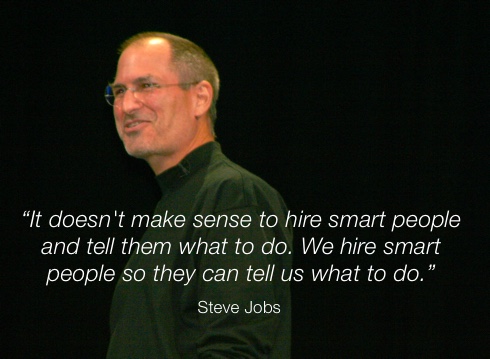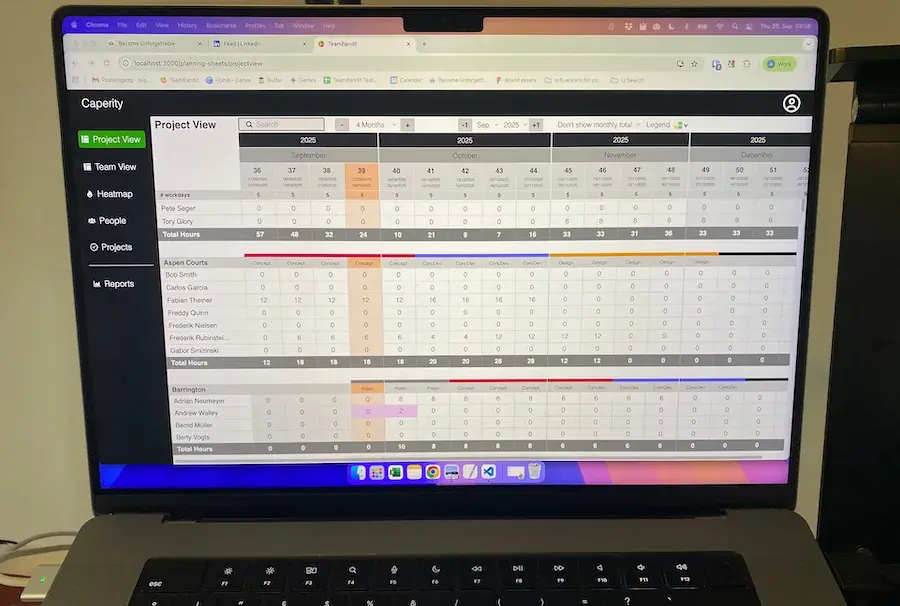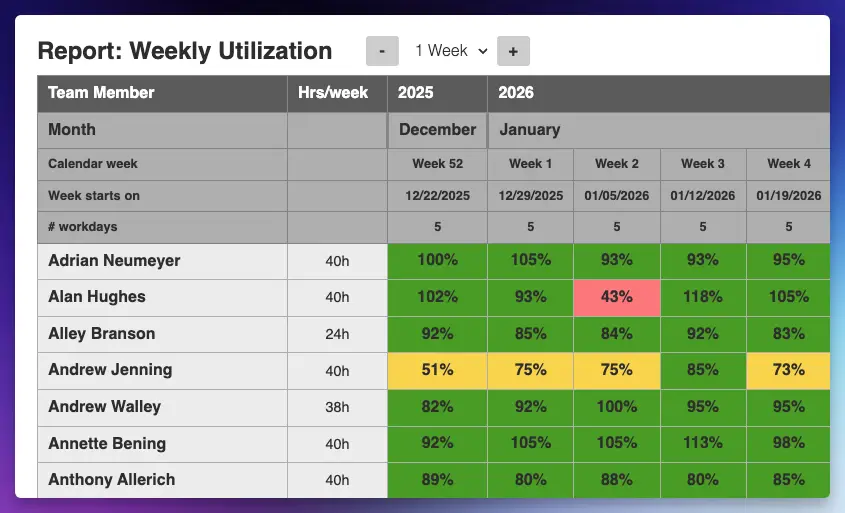We always fought hard to get the best people on our projects.
Because we knew the difference between average performers and a dream candidates would mean going on a hell ride vs a marathon that we had a realistic chance of winning.
In this article I’m sharing advice on how you can choose the right people for your project team. I’ll also give you hands on tips for evaluating the personality of candidates.
But let’s first face reality.
Why getting the best people is always a battle
We don’t live in an ideal world. Resources are always limited. This goes also for great project team members. In any organization you have the top 10% which are top performers.
Then you have the average people which make up 70-80% of the workforce. They will do more or less what you’re asking them for — but not more.
Then there are the bottom 10-20% which are the people you always have to chase behind. They fail to meet deadlines and their work doesn’t meet your standards. And they have all sorts of excuses and they will naturally blame others for their faults.
That’s the reality.
What you want is to get most of the upper 10% — the top performers — in your project. But that is almost impossible to achieve.
Top performers are usually guarded by their managers like holy cows. And they are being assigned those tasks that their managers consider most important, not what you consider important.
In the best case you may get a few top performers, but only with a very limited time commitment. This will require some negotiation with the respective supervisors. Maybe you even have to get upper management involved to get the people you want.
It comes down to communicating very clearly: ‘If we don’t get the best people for this project, it’s going to fail. Do you want that to happen?’
Look for the right mix of people
Having reconciled with reality and knowing that you can’t staff your project with A players only, your job as project leader or sponsor is to find the right mix of people.
This means to have enough strong performers in the team who will push the project and the rest of the team forward, even the average and low performers.
This good mix of people shouldn’t just be present for the project as a whole. Also the sub teams of your project should have the right distribution of top and average performers.
Now the question is what you should be looking for in team members.

The qualities you should be looking for
When choosing team members for my projects, I always looked for the following qualities:
- people person
- good communicator
- reliable
- integrity
- leader qualities
- experience
(These are also the qualities of good project managers)
Let’s look at each one separately.
Quality #1: People person
I prefer people who are comfortable around other people over complete introverts. This is a general rule I apply to most roles, but not necessarily to every role.
With introverts you often run into communication issues. Their communication style revolves around sending email, often resulting in misunderstandings and more time required to clarify issues (read about the 3 levels of understanding).
Indicators for a people person: He/she is comfortable in groups, able to speak up in front of others, has phone calls or face to face meetings to sort out things, shows empathy, is able to build relationships with people from different backgrounds
Quality #2: Good communicator
You can think of a project as a machine consisting of different parts which are interacting with each other. The parts are the team members and the interaction is not a mechanical one but comes in the form of communication.
If the parts (i.e. the people) operate well with each other, that is if people exchange information, help each other out or communicate issues promptly, then the machine will keep operating smoothly.
To take our analogy further, you need to have good ‘parts’ (people) who keep the oil (information) flowing so that the project is moving forward.
So, how do you identify candidates with good communication habits?
Indicators for a good communicator: The person is able to clearly articulate the requirement, message or issue — in a conversation but also in an email. She is able to explain complicated things in easy terms. She can give you the broader context of a request — why is it needed? what has been tried before and so on.
To facilitate communication in the project, you should always create a communication plan (I even have a template for you).
Quality #3: Reliable
If you give a task to one of your team members to be completed by Friday, and you don’t hear back from that person until Friday at midnight, you shouldn’t work with her because she’s not reliable. Assuming no tragedy has happened in between, of course.
I can tell you this:
There’s nothing I value more in people than if they keep promises.
Indicators for reliable behavior: Person shows up on time at meetings. Person sticks to agreed deadlines. Person keeps promises made.
Quality #4: Leader qualities
The term leadership is so overused nowadays that most people don’t understand what being a leader actually means.
Here’s what I think makes a leader:
- A leader is somebody who contributes with original, innovative ideas
- A leader not only has good ideas but also turns them into reality. Leaders are able and willing to execute.
- A leader takes over responsibility (without being asked to do so)
- Leaders are role models for other people. They can inspire others to try new things or to be more ambitious.
- Leaders are able to view things from a higher-level perspective. They see the forest where other people just see trees.
Normally you can feel immediately when you are talking to a leader-type person. The person doesn’t blindly take your orders and rushes ahead. She brings in own ideas and maybe even challenges your plan — with the goal of achieving a better result!
Isn’t that what you want as well?
Indicators for leadership qualities: See above list
Quality #5: Integrity
You want people in the team who are honest and sincere. People who tell you the truth even if it hurts. Who bring up issues the moment they become aware of them. You want people who are able to admit own mistakes and learn from them.
This is the kind of integrity you need in a project.
Indicators for integrity: People are able to address difficult topics. They don’t sugar coat things. They are conscious about their own weaknesses. Beware of people who constantly blame others for failures!
Quality #6: Knowledge and experience
It goes without saying that you need team members who are capable of performing the required task.
You want to look for people who have the knowledge about the processes and tools the project is concerned with. And you don’t want absolute greenhorns who come with only one or two years of experience.
The more experience the better, especially when you are working in a complex field which requires knowledge that team members cannot acquire in the course of the project.
The benefit of having experienced staff on your project isn’t just about having access to greater knowledge. Senior team members usually bring another valuable asset to your project: their personal network inside the company. And this can be really helpful to get things done quickly or if the project needs help.
Which traits should you focus on most?
I first look for people who have the background and experience that will enable them to do the work in a good way. Usually these are not the youngest team members.
Experience alone however won’t make a person a good project contributor. Apart from experience, I always prefer people that are highly reliable and who come with lots of energy. That means they are motivated for their job and they find joy in giving their best.
Lastly, I want to work with people I like and respect. So if I can choose between a top-achieving jerk and a nice person with sound experience, I’d go for the latter one.
Author
-
Hi, I’m Adrian, a Senior Project Manager and the Creator of Tactical Project Manager, where I teach a pragmatic approach to project management. Led large-scale IT and business projects for over 10 years. My goal is to enable you to lead any project with confidence.
View all posts


